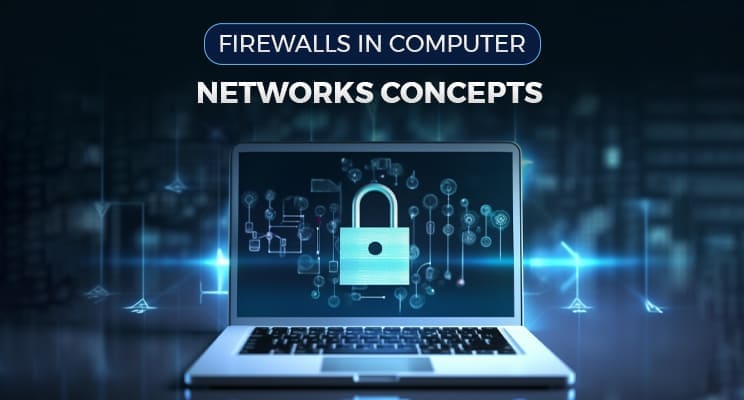Networking Basics: Key Components of Computer Networks You Must Know
Networking Fundamentals: Essential Elements of Computer Networks You Should Know
In the world today that is highly digitalized, knowing the elements of computer networks is vital for anyone interested in a career in IT, cloud computing, cybersecurity, or DevOps. If you are studying for Linux interview questions and answers, or entering the realm of AWS training and certification, knowing networking fundamentals is the precursor to being able to advance to higher technologies.

At UniNets, our goal is to help students and professionals learn and grow in the IT domain through expert training in AWS courses, CISSP training, Ansible, and more. In this blog post, we’ll explain the key components of computer networks, their functions, and how they relate to career paths in IT infrastructure, cloud, and security.
What Is a Computer Network?
A computer network is a collection of interconnected hardware (computers, servers, switches, routers, etc.) that exchange information and share resources. Networks provide a means for secure and efficient transfer of data, allowing applications such as email, file transfer, cloud, and enterprise applications to operate.
Major Elements of Computer Networks
Let's deconstruct the building blocks of computer networks every prospective IT professional should be aware of:
1. Network Interface Card (NIC)2. NICsA NIC is hardware that is used to link a computer to a network. It can either be wired (Ethernet) or wireless (Wi-Fi). It provides the gateway between a device and the network, sending and receiving data in the form of signals.
2. SwitchesSwitches are smart devices that link several devices in a Local Area Network (LAN) and direct data to the appropriate destination. They play a vital role in effective communication within networks.
Preparation of Linux interview questions? Knowledge about switch configuration and commands is usually part of Linux interview questions and answers, particularly in network administration jobs.
3. RoutersRouters link several networks, like a LAN to the internet. Routers decide the optimal path for data packets and control traffic between devices on other IP networks.
In cloud infrastructures such as AWS, routing is crucial when setting up VPCs, subnets, and internet gateways, so knowing how it works is critical to many AWS certification and training programs.
4. ModemsModems (modulator-demodulators) take digital signals and transform them into analog to be sent over telephone lines and reverse. Modems are utilized in home and small-office networks for internet.
5. Access PointsAn access point enables wireless-capable devices to join a wired network. It is fundamental to Wi-Fi implementations in both residential and enterprise networks.
6. FirewallA firewall is an appliance—hardware or software—used to monitor and control incoming and outgoing network traffic in accordance with security rules. It's widely discussed in CISSP training and courses.
If you're looking to pass the CISSP course, be sure to get into detail regarding firewalls, intrusion detection systems (IDS), and other security elements of networks.
7. Cables and ConnectorsPhysical elements such as Ethernet cables (Cat5, Cat6) and fiber optic cables constitute the foundation of wired networks. Connectors such as RJ-45 are common in LANs.
8. Servers and ClientsA server offers resources and services such as web hosting, databases, or email, while clients make requests for these services. Knowing the client-server architecture is essential to every IT professional, particularly in Linux and AWS environments.
How These Components Align with Certifications and Career Paths
Mastering these components is more than theoretical—it forms the foundation of multiple high-in-demand IT careers. This is how they relate to UniNets certifications and training paths:
1. Linux Interview Questions and AnswersMost Linux interview questions are about networking fundamentals, such as commands ip, netstat, ifconfig, ss, and utilities like iptables. Understanding the functionality of routers, switches, and NICs makes it easier to answer these questions.
Example:Q: What do you do to check a system's IP address in Linux?A: By using the ip a or ifconfig command, which shows the IP against the NIC.
2. AWS Training and CertificationAWS training teaches networking concepts thoroughly, particularly in domains such as VPC, security groups, NAT gateways, and Elastic Load Balancers (ELB). Knowledge of traditional networking devices assists in effectively setting up and administering cloud-based environments.
Our AWS training at UniNets consists of practical labs where students set up networks in the AWS cloud environment, which increases hands-on understanding.
3. CISSP Course and TrainingThe CISSP (Certified Information Systems Security Professional) training is centered on secure network architecture. You will be learning about perimeter defenses, firewalls, VPNs, and network access controls—all based on fundamental network elements.
Through UniNets' CISSP training, you will also gain knowledge on how to protect each element of the network—from physical security to encryption and access control.
4. Ansible Interview QuestionsAlthough Ansible is mainly a config management tool, interviewers usually interview people on how they utilize Ansible to automate network configurations. Understanding network devices is required while creating Ansible playbooks for operations such as managing firewalls, restarting services, or setting up interfaces.
Why Learn Networking Basics at UniNets?
At UniNets, our aim is to offer career-focused, hands-on training that bridges core concepts with job-ready abilities. Be it preparing for Linux interviews, preparing for CISSP certification, or looking for AWS courses, networking basics are a prime stepping stone.
Here's what we have in store:Expert Trainers: Learn from industry-expert, certified trainers.
Live Projects: Get hands-on exposure through real-world labs.
Interview Preparation: Gain access to the most frequently requested Linux interview questions and answers, Ansible interview questions, and more.
Flexible Learning: Online and classroom options to fit your schedule.
Final Thoughts
Learning about the elements of computer networks is not merely about exam success—it's about establishing a solid IT foundation. Whether you're setting up AWS environments, securing networks as a CISSP, or automating processes with Ansible, your understanding of networking is key.
Ready to start your journey? Enroll in our AWS training, CISSP course, or Linux certification path at UniNets, and take the next step in your IT career today.
